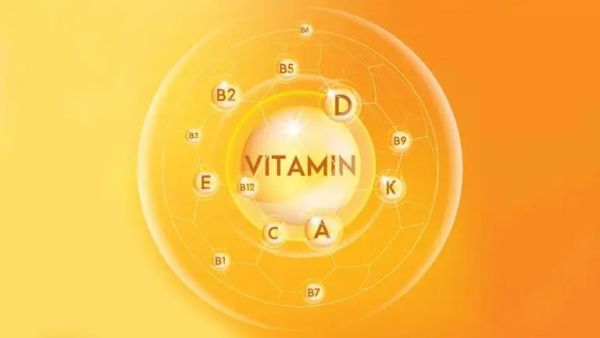
vitamins and minerals: It is very important to have adequate vitamins and minerals in the body to stay healthy. Lack of vitamins and minerals in the body can lead to many diseases. You must have often heard about vitamins and minerals like vitamin D, vitamin C, vitamin E, calcium, iron and magnesium. In this article, we are going to tell you about 18 such vitamins and minerals, which are considered very important for a healthy body. Let us know in detail from Dr. Sugita Mutreja, dietician of Arogya Diet and Nutrition Clinic, which vitamins and minerals are essential for the body.
Vitamin A is fat soluble. Vitamin A is very important for the eyes. Apart from this, vitamin A also works to boost immunity and cells. Vitamin A acts as an antioxidant in cells, helps in repairing cells.
Carrots, sweet potatoes, tomatoes, spinach and broccoli are good sources of vitamin A. Apart from this, custard apple, kale, red capsicum, mango, fish oil and milk also contain vitamin A. Eggs are also a good source of vitamin A.
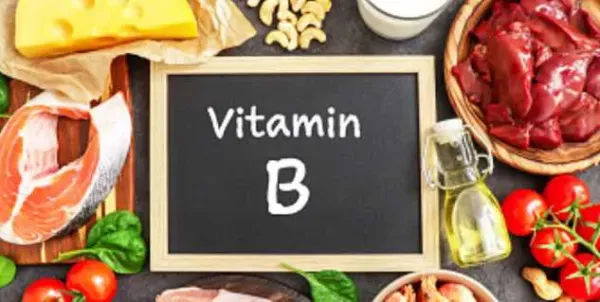
Vitamin B1 means thiamine. Vitamin B1 is considered essential for the brain. Thiamine is a type of vitamin that the body needs to provide energy, metabolism and cell growth. Pregnant and lactating women need more vitamin B1. Weight loss, memory loss and muscle weakness are symptoms of vitamin B1 deficiency in the body.
Thiamine is naturally found in meat, fish and whole grains. Apart from this, beans, lentils, green peas, rice, sunflower seeds and yogurt are also good sources of vitamin B1 or thiamine.
Vitamin B2 stands for riboflavin. Vitamin B2 is helpful in increasing red blood cells, carrying oxygen in the blood and preventing anemia. Vitamin B2 also prevents anemia. Vitamin B2 helps in maintaining iron levels. Symptoms of vitamin B2 deficiency in the body include swelling in the corners of the lips, dry lips, darkening of the tongue, sore throat, fatigue, sore throat, burning sensation in the eyes, itching in the eyes and swelling of the tongue.
Organ meats, eggs, lean meats, and vegetables are high in vitamin B2. Vegetarians may be deficient in vitamin B2 or riboflavin.
Vitamin B3 converts food into energy and stores it in the body. Vitamin B3 also helps in nerve function. It promotes the health of skin, tissues and digestive system. Vitamin B3 deficiency is called pellagra. Mental problems, dementia, digestive problems can be symptoms of vitamin B3 deficiency.
Vitamin B3 means niacin. Tuna fish is rich in niacin. Apart from this, if you are a vegetarian then you can get vitamin B3 from avocado, peanuts, whole grains, mushrooms, potatoes and green peas.
Vitamin B6 is essential for physical and mental functions. Vitamin B6 is essential for metabolism, nerve function, healthy eyes, skin and liver. It also works to increase physical energy levels. Muscle weakness, irritability, depression, nervousness, difficulty concentrating are symptoms of vitamin B6 deficiency.
Bananas are a very good source of vitamin B6. Apart from this, milk, salmon, tuna and eggs also contain vitamin B6. If you are a vegetarian, you can get vitamin B6 from carrots, spinach, sweet potatoes, green peas and avocado.
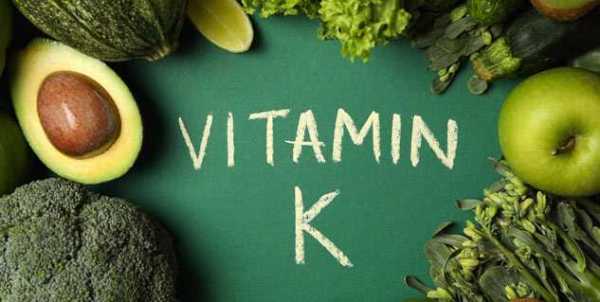
Leafy vegetables are rich in vitamin K. Vitamin K is a nutrient that is essential for maintaining healthy bones. It acts as an enzyme to produce proteins, which aid in both blood clotting and bone metabolism. Collards, turnip greens, spinach and kale are rich in vitamin K.
Vitamin B12 is very important for the formation of red blood cells in the body. It helps in delivering folic acid to the body. If there is a deficiency of vitamin B12 in the body, you may face problems like mental problems, pain in bones and joints. Fatigue, weakness, constipation, weight loss, loss of appetite, depression, dementia, numbness of hands and feet can be symptoms of vitamin B12 deficiency. Vitamin B12 deficiency is more common in people with gastrointestinal disorders.
Yeast, tuna, fortified cereals, fish, meat, dairy products and eggs contain good amounts of vitamin B12. Apart from this, milk and milk products are also rich in vitamin B12. All these are good sources of vitamin B12.
Vitamin C is an antioxidant, which is essential for the body's immune system. Vitamin C is very beneficial for healthy bones, skin and muscles. Therefore, you should include vitamin C in your diet. Swelling, bleeding gums, delayed wound healing can be caused by vitamin C deficiency.
Vitamin C is found in citrus fruits. Oranges, kiwis, lemons, orange juice, black peppers, strawberries, broccoli and potatoes are rich in vitamin C.
Calcium is very important for strengthening bones. Calcium is essential for bones and teeth. Include calcium in your diet to keep bones healthy.
Milk, cheese and milk products are rich in calcium. Green leafy vegetables like broccoli and kale also contain calcium. To fulfill your calcium needs, you can include calcium-rich foods in your diet.
It helps the body regulate cell growth, fight inflammation, and boost immune function. It may help the body fight infection. Works with calcium to maintain healthy bones and prevent osteoporosis.
Sunlight is an excellent source of vitamin D. Vitamin D is a fat-soluble vitamin. Salmon, mackerel, and tuna contain vitamin D. Egg yolks, fortified milk, and orange juice may also contain vitamin D.
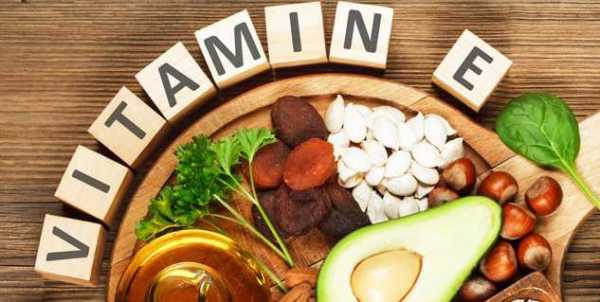
Vitamin E is an antioxidant vitamin that protects cells from free radicals. Good sources of vitamin E include wheat germ oil, sunflower seeds, almonds, hazelnuts and peanuts. Nut butters are good sources of vitamin E.
Folate is a B vitamin. Natural sources are found in green leafy vegetables, nuts, meat, poultry, beans, fruit, seafood, eggs, cereals, spinach, asparagus and Brussels sprouts. Folic acid also prevents birth defects in the brain and spina bifida.
Iodine is a trace mineral that is important for the proper functioning of the thyroid gland. Natural sources of iodine include seaweed, cod, yogurt and milk. Table salt and bread are often enriched with the mineral.
Iron is a mineral that is essential for the body because it is a component of hemoglobin, a protein that carries oxygen from the lungs and transports it to the tissues. You need enough iron to make healthy red blood cells. Iron deficiency leads to a condition called iron deficiency anemia. Fortified breakfast cereals, white beans, dark chocolate contain iron.
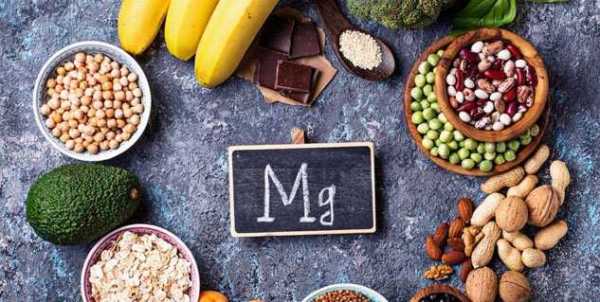
Magnesium is a mineral used in more than 300 enzyme reactions in the body. You need magnesium to make proteins and DNA, regulate blood sugar and blood pressure, produce energy, and promote proper nerve and muscle function. Symptoms of magnesium deficiency include nausea, vomiting, weakness, fatigue, and loss of appetite. Almonds, cashews, and peanuts contain good amounts of magnesium. Spinach, beans, and avocado also contain magnesium.
Potassium is a mineral that acts as an electrolyte in the body. It also regulates blood pressure and liver function. The heart, brain and nervous system need potassium to function properly. Potatoes, plums, sweet potatoes, carrots, bananas, green leafy vegetables, watermelon and tomatoes are good sources of potassium.
Selenium is a trace mineral that your body needs for the proper functioning of the thyroid gland and immune system. Selenium is an antioxidant that protects cells and tissues from damage caused by free radicals. Brazil nuts, seafood, organ meats, meat and eggs are good sources of selenium.
Zinc is an essential mineral for maintaining your sense of taste and smell. It is important for the immune system and your body needs it for wound healing. Diarrhea, hair loss, impotence, weight loss, slow wound healing and mental retardation can be symptoms of zinc deficiency.
Zinc is one of the minerals that helps protect your eyes. Seafood, baked beans, and yogurt are good sources of zinc.